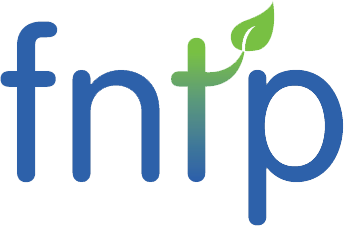
The past three years have seen a five-fold increase in cases seeking advice from FNTP regarding the legality of products sold by nutritional therapy practitioners. As the numbers continue to rise, we look at whether the confusion surrounding the Novel Foods Act might lead nutritional therapy practitioners into inadvertently selling illegal products, the implications thereof, and the need for clear regulatory guidance.
Amid these regulatory challenges, concerns are rising over the diminishing freedom of choice that is eroding the industry’s ability to develop innovative products whilst at the same time some functional medicine practitioners are pushing the boundaries of food supplements and venturing into risky regulatory territory. This evolving landscape highlights the tension between innovation in nutritional therapy and the regulatory frameworks designed to ensure public safety, underscoring the need for a balance that allows for both innovation and consumer protection.
The Novel Foods Act and Its Impact on Nutritional Therapy Practitioners
The concept of “novel foods” refers to foods and ingredients that were not widely consumed in the EU before May 1997. These include new or innovative foods, foods produced using new technologies and production processes, as well as foods traditionally eaten outside of the EU. The regulation of novel foods is critical for ensuring food safety and public health, requiring that such foods undergo a pre-market safety assessment before they can be legally sold within the UK and the broader EU.
The UK follows the European Union’s regulatory framework for novel foods, even post-Brexit, through retained EU law. This includes the need for pre-market authorisation for novel foods, based on an assessment of safety data. Among the products often cited in discussions around novel foods are Cannabidiol (CBD) products, key enzymes, probiotic strains, and herbs. CBD in particular has gained popularity for its purported health benefits, with many nutritional therapy practitioners recommending it for various conditions. CBD products are considered novel foods and thus require authorisation and/or approval before being placed onto the market.
However CBD products which applied for authorisation before 31st March 2021 may continue to be sold. It is indicative of how disfunctional the process has become that in 2024 there are believed to be over a thousand applications for novel food approval still stuck in the FSA process without any decision date.
The main issue arises from the ambiguity and complexity of the Novel Foods legislation. For many nutritional therapy practitioners, especially those operating small businesses or as sole practitioners, navigating these regulatory waters can be challenging. The definitions of what constitutes a novel food can be broad and open to interpretation, and the process for gaining authorisation is cumbersome and resource intensive.
Moreover, the legal status of foods containing CBD and hemp adds another layer of complexity. While certain uses of hemp are permitted, the line between legal and illegal products can be thin, leading to potential confusion among practitioners about what products they can legally sell.
The Risks of Inadvertently Selling Illegal Products
Selling unauthorised novel foods is illegal and can have serious consequences, including fines, product seizures, and damage to professional reputation. For nutritional therapy practitioners, who often build their practices on trust and credibility, being found in violation of food safety laws can be particularly damaging. Furthermore, practitioners found to be selling illegal products may also discover that they are in breach of the terms of their liability insurance.
Addressing the Confusion: The Need for Clear Guidance and a Functioning System
The key to mitigating the risk of selling illegal products lies in education and clear guidance. Regulatory bodies would usually play a crucial role in providing up-to-date information on relevant regulations and the authorisation process. Such guidance by the Food Standards Agency (FSA) is considered by many, to be inaccessible and to most unintelligible, leaving stakeholders, including nutritional therapy practitioners, with major problems understanding the process and navigating the Novel Foods legislation.
In response to representation from the FNTP and other stakeholders the Government, recognised the evolving landscape of food innovation and the necessity for a regulatory framework that both protects public health and fosters innovation. In 2023 it commissioned a comprehensive review of the Food Standards Agency’s (FSA) Novel Food Approval process. This initiative, undertaken with the expertise of Deloitte, critically evaluated the current regulatory framework and challenges if the process remains fit for purpose in a post-Brexit context.
The review has made a number of recommendations ranging from minor alterations to full structural change. FNTP is concerned that no official consultation has yet been announced.
What next?
The potential for nutritional therapy practitioners to invalidate their insurance and/or face legal consequences by selling illegal products due to confusion caused by the Novel Foods Act is a significant concern. FNTP is engaging with other stakeholders to continue to lobby the Government to replace the Food Standards Agency’s (FSA) Novel Food Approval process with a more functional facility more appropriate to the needs of the industry. A change which will remove the risk to Nutritional Therapy Practitioners.
